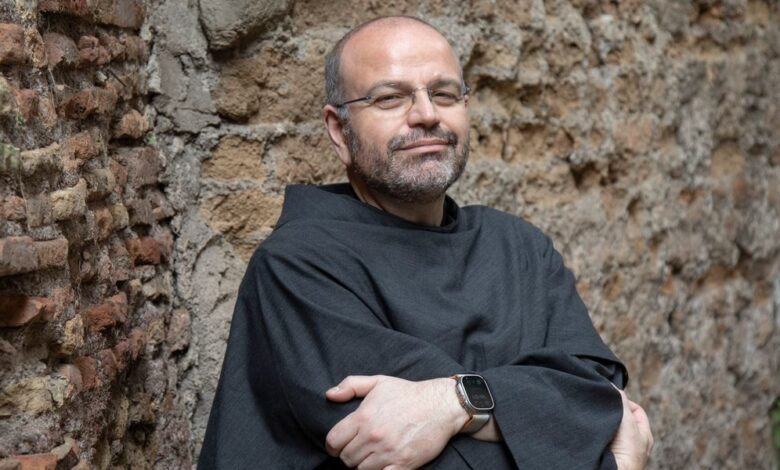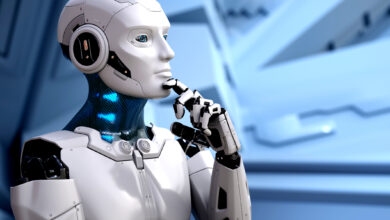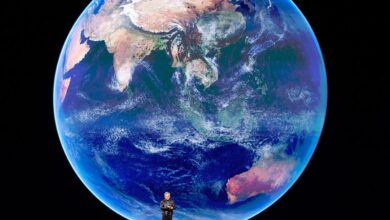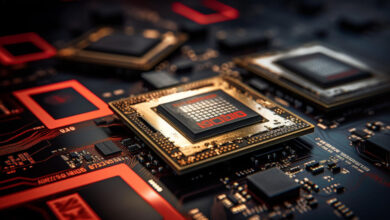For Pope Francis, artificial intelligence is a social issue

La Croix: Is Pope Francis personally interested in artificial intelligence (AI), a topic he is scheduled to address on Friday, June 14, at the G7 summit?
Paolo Benanti: What matters to him, regardless of the subject, is its effect on the poor. He lacks technical knowledge, of course, but he understands that AI can have a huge impact on poverty. In this regard, he considers it a social issue, like migrants or the environment.
About a decade ago, Catholic thought on technology was very focused on transhumanism and was highly critical. Today, AI seems to be more favorably received by the Church. Why this change in tone?
Because they are two different things. Transhumanism is a philosophy and an ideology. Artificial intelligence is a technology. It is not problematic in itself, but by its effects on society and the intentions of those who use it. A “virtual assistant” nestled in a cell phone can be an adolescent’s worst enemy if it encourages bad choices, but it can also save an elderly person’s life if they have an accident and use it to call for help. One can have a firm opinion on an ideology, not on a technology.
In his message for peace delivered on January 2 – in a way, his first speech on AI – Pope Francis emphasized that technology is not neutral. Doesn’t it shape the world it is part of?
Be careful, this speech is indeed about peace: it is by no means a systematic treatise on AI! That said, I am the first to say that a “neutral” technology does not exist. Every technological object generates a shift in power. For example, the automobile favored the emergence of a public space “made for it” a century ago, which cares little about each individual’s will to use a car or not.
But just because technologies are not neutral does not mean they are bad. Companies, based on my experience, are not the enemy of good: many seek honest and open dialogue. Of course, this does not guarantee that things will go well. But having discernment, to use the Pope’s words, is now part of business.
There is sometimes talk of “ethics-washing,” where companies reassure the public while continuing to deploy their systems. Do their approaches to technology ethics seem sincere to you?
Ethics will not solve all problems, but it can have positive effects. Aligning with such principles gives companies an advantage in market regulation: they know it will cost less later to comply.
Ethics also give meaning to work, at a time when many employees want to play a positive role in society. This is true for Catholics as well as believers of other religions. That’s why the Vatican’s call for AI ethics (an initiative taken in 2020) was extended to Muslims and Jews in 2023, and to other religions next July.
In any case, it seems clear to me that companies should not be allowed to appropriate the ethical issue. That would already be deciding that we do not want this ethics. I understand, of course, that they are closely interested in this topic, but we must not give in on this.
What is the Catholic perspective on AI?
Producing Magisterial texts takes time. It is too early to expect the Church to have a solid and structured reflection, a maturation time is essential. Let’s not forget that a year and a half ago, no one had heard of ChatGPT. But this does not prevent us, as theologians, philosophers, Catholics, from doing work today that will, I hope, inform the Church’s discernment for later positions.
How does AI affect Christian anthropology? Can these so-called “intelligent” systems relativize man’s place at the top of intellectual life?
I do not believe that a machine can change who we are. AI can lock us in a gilded cage, of course. But our dignity, thank God, no technology can take from us.
What is a “gilded cage”?
The fact of trading our freedom for comfort. When we see someone tapping on their phone keyboard, we can ask: are their fingers controlling the machine, or are the notifications controlling them? Instead of giving us the ability to satisfy our deepest desires, these tools can satisfy secondary needs. We must protect vulnerable people (the youngest, the oldest) from such effects.
The problem is that many people think they are only using AI in a limited way. But anyone who uses Google is linked to an AI! Its algorithm decides what I will see or not. These mechanisms guide us in a direction: it is already a limitation of our freedom. However, freedom and dignity are at the heart of theological reflection on these subjects.
You talk about “algor-ethics,” but doesn’t everyone define this term as they wish?
I was the first to use this word in 2018, and I think my definition holds for everyone. Just because some call “love” what is actually sexual addiction does not mean the definition of love changes.
Is the definition different from that of technology ethics?
No. It is an ethics of technology that applies to algorithms. It is about seeing how they shape and shift power within society. An example: in Italy, during the Covid-19 pandemic, vaccination appointments were set by an algorithm. Formally speaking, it is a shift of power, just like the bridges built by Robert Moses in New York at the beginning of the 20th century.
In this context, the mission of Christians is to illuminate this process, then act. We must bring light. Without sticking to a purely Christian argument! When I talk with Muslims and Jews about artificial intelligence and its regulation, especially within the UN committee (the AI advisory committee, of which I am a member), I feel like we speak the same language.
Some believe that we should not ask how to make AI acceptable or ethical, but rather what kind of society AI is creating, and whether we want that society. What do you think?
These are two sides of the same problem. Defining the society we want to live in also means thinking about what AI is acceptable. If I say I want to build a society where dignity is the primary criterion, it means I refuse everything that undermines it. Conversely, if I judge a tool unacceptable, it’s because it contributes to building a society I do not want.
As Christians, we have a duty: to bear complexity. In Catholicism, we can think of contradictory realities. Jesus Christ was man and God. In the field of AI, we must carry out a reflection that takes this complexity into account, without focusing solely on the tool.
In your opinion, what kind of society is AI creating?
It is very different depending on where in the world you are. This is part of the complexity. The United States is driven by the market, China by the state. The new European AI regulation (the AI Act, adopted last May 21) will teach us what kind of society we are capable of building in Europe.
AI is mainly used today to optimize flows, reduce costs, and thus accelerate the movement of society as it is. Is this ecologically sustainable and compatible with the requirements of Laudato si’ and Fratelli tutti?
We can certainly imagine that AI helps us have a more sustainable society by accelerating digital use. If you watch a movie streaming, it will consume less energy than if you drive to the cinema, sit in an air-conditioned room, and eat popcorn…
AI is a multiplier: it can multiply wealth as well as inequalities and injustice. Having ethics on AI means always placing these systems under the lens of reflection and social critique. It is the role of Christians: feet on the ground and head in the sky. Our role is to engage for societal change. If we do not, we will be part of the problem, not the solution.



